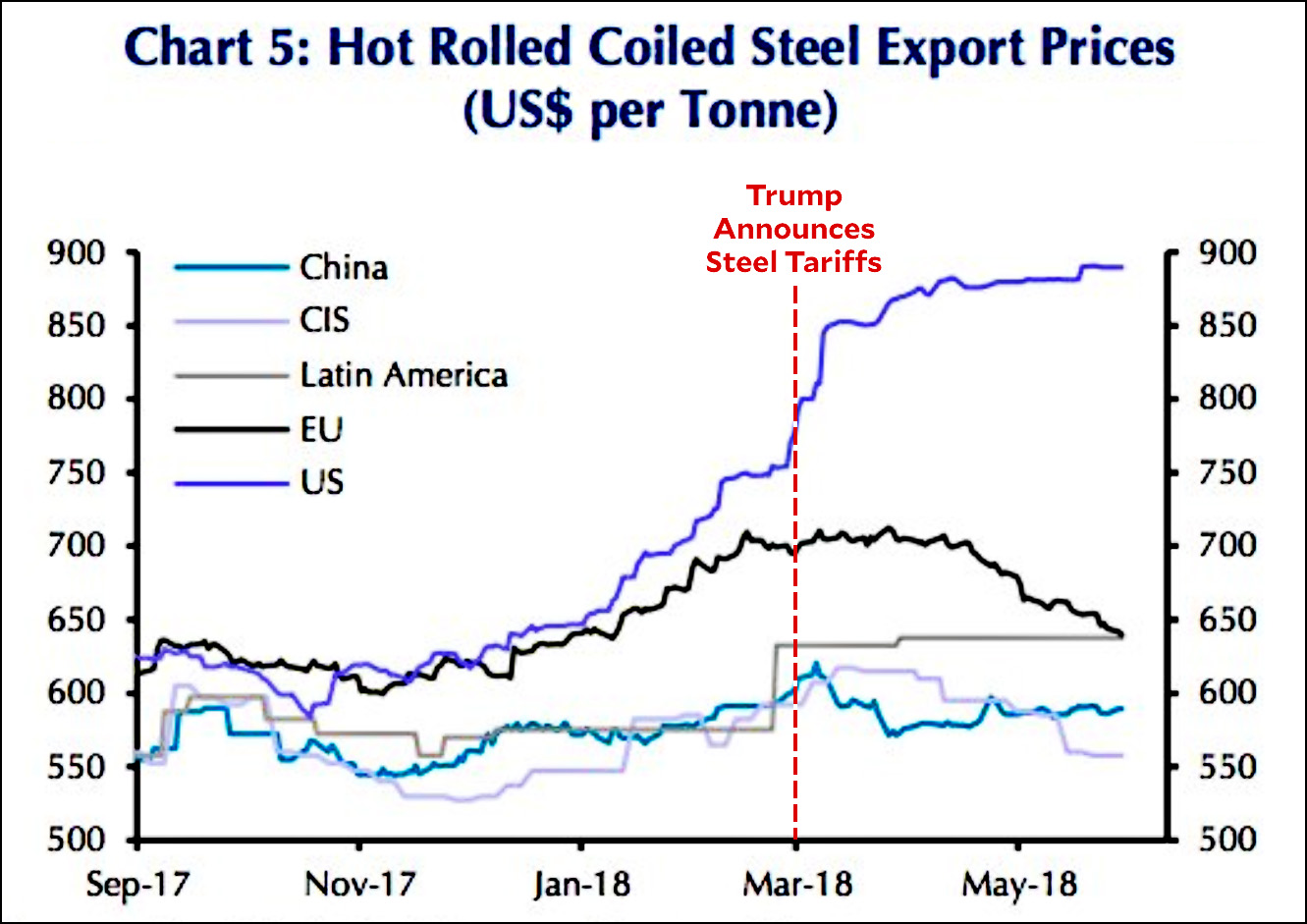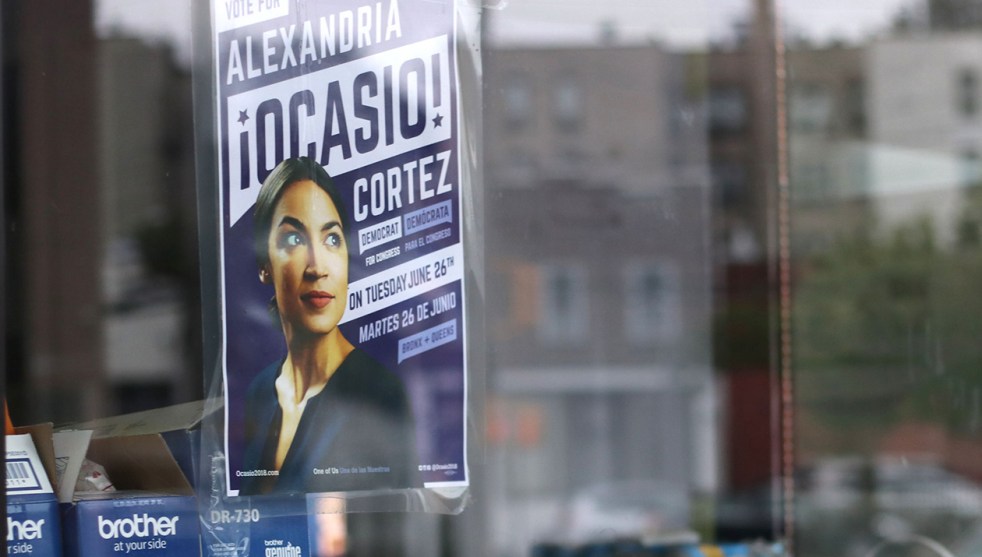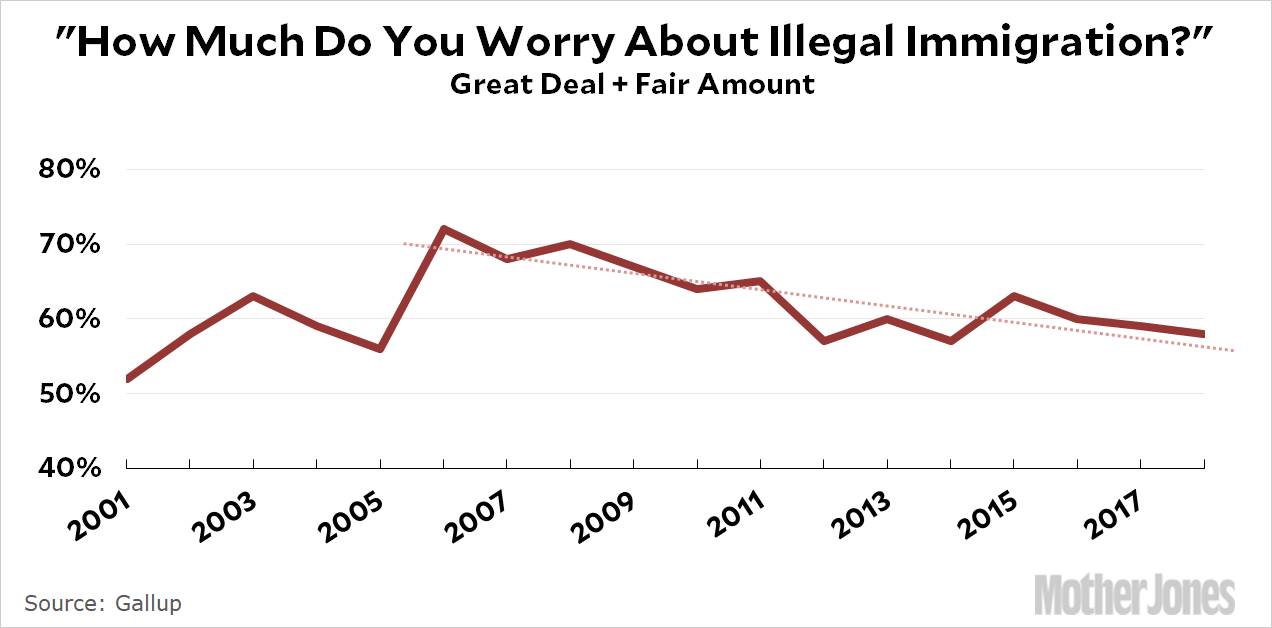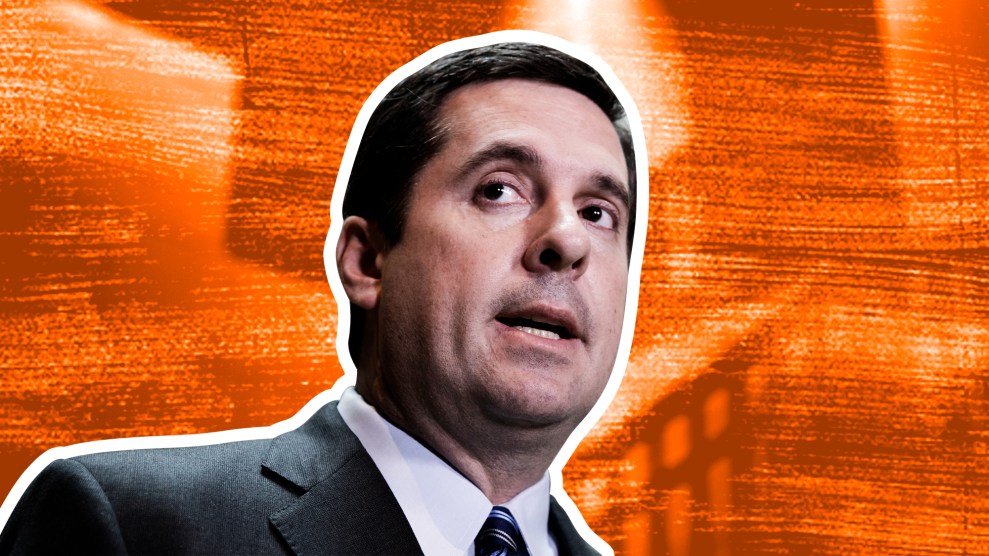A post from Dean Baker prompts me to show you the following chart:
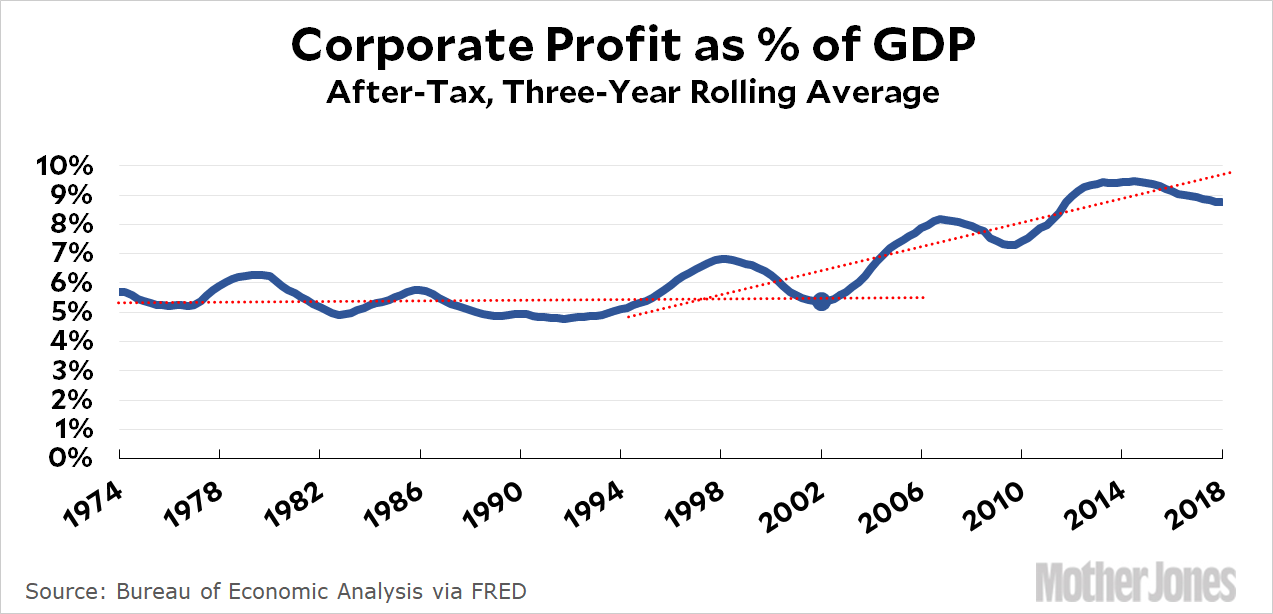
Corporate profits go up and down with the business cycle, but averaged 5-6 percent of GDP on a pretty steady basis through 2002. Then things changed. Since 2002, profits have increased dramatically, and today stand at about 9 percent of GDP. Now take a look at a chart showing median wage income for workers:
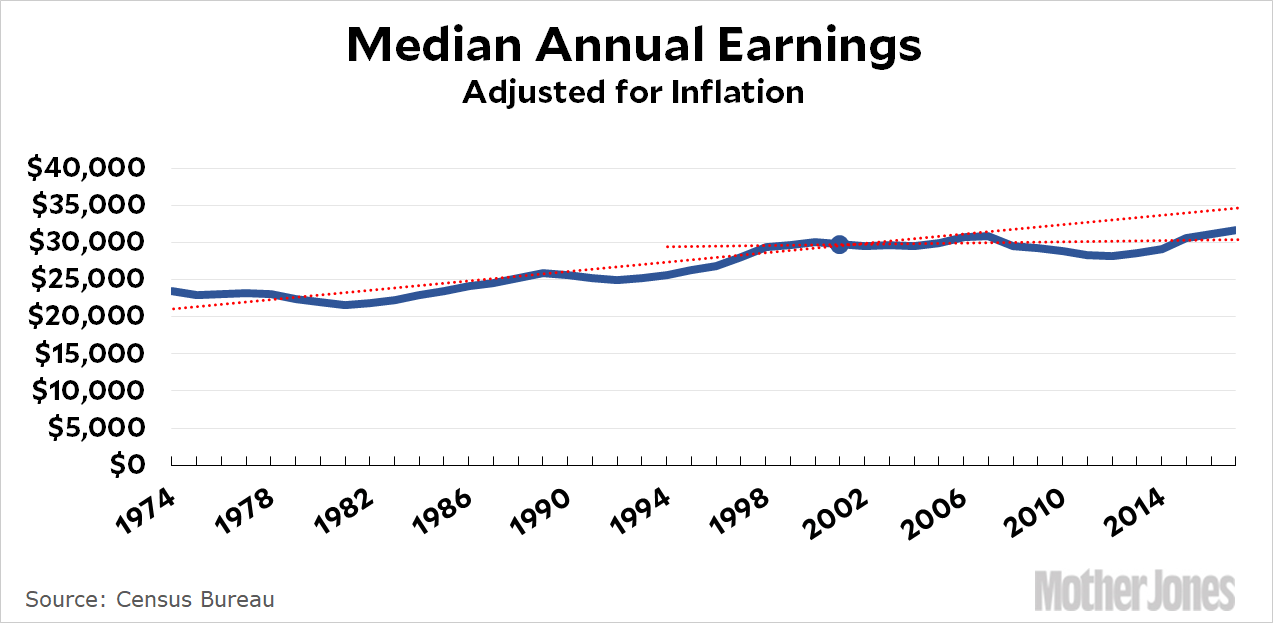
It’s a mirror image. Up through 2002, wage income was rising. Not a lot, but the trend was generally upward. Since 2002, however, wages have been dead flat.
Baker estimates that a change in corporate earnings of 4 percentage points is about equal to $4,000 per person in annual earnings. That accounts almost precisely for the change in the trendline. Corporate profits have increased about $600 billion more than the previous trend, while median earnings have increased about $600 billion less than the previous trend. This is not a coincidence. Now one final chart:
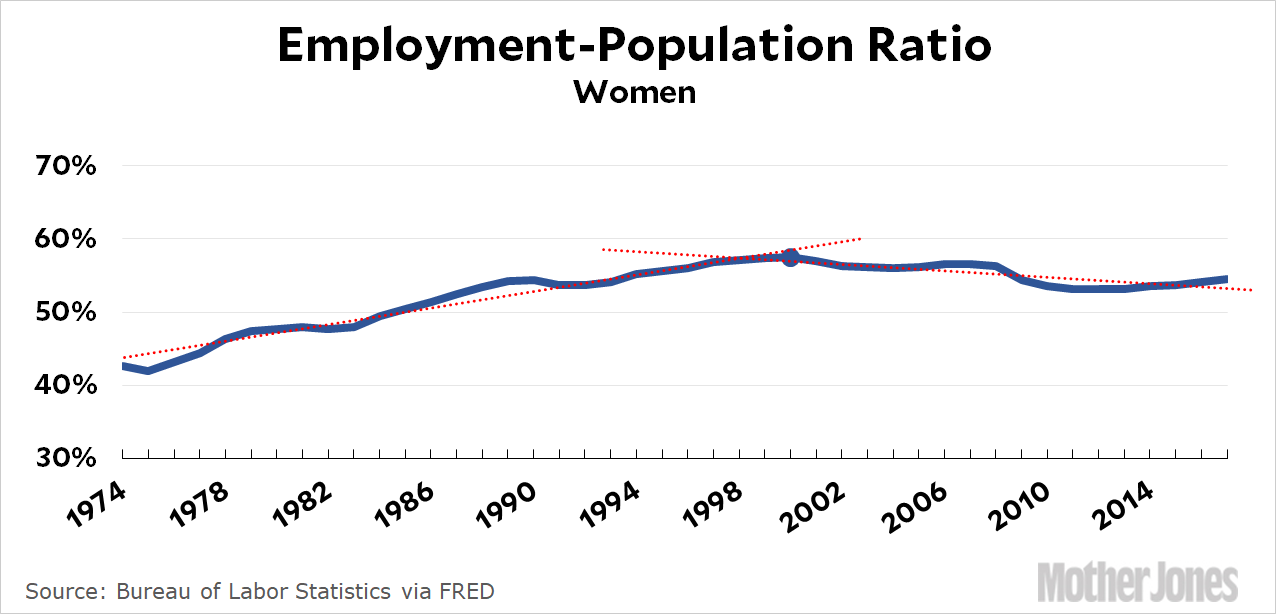
It’s the same inflection point. So here’s the story:
- Since 2002, corporations have been retaining much higher profits than they used to.
- They could do this because they stopped giving their employees annual raises.
- As a result, the number of women joining the labor force began declining. (The number of men in the labor force was already declining, and this trend continued.)
- Businesses then began complaining that they couldn’t find enough qualified workers.
There are qualified workers out there. At least, there would be if more of them had been given stronger incentives to join or stay in the labor force. But they weren’t because CEOs and shareholders wanted more money for themselves. Now they’re stuck.
Corporate America can either pay its executives more or it can pay its workers more. It’s their choice. But if they choose to stiff workers and rake in more profits for themselves, they need to quit griping when a few million of those same workers decide to stay home instead of taking the jobs they have on offer. Most people can’t afford to make that choice, of course, but there are always a few percent at the margin who can. And they have.

